Course Descriptions
College of Arts & Sciences
Spring 2025
Special Topic Courses
BS495 ST: Decision Making (3 credit hours)
Develops a theoretical and practical understanding of individual and multiparty decision-making processes. Emphasis placed on learning about the systematic ways in which people’s judgments deviate from what a rational model would predict. Coverage of multiparty decision making includes an extensive treatment of negotiation strategies. Applications to the management context and recommendations for improving decision making are highlighted.
EC495 ST: Environmental Economics (3 credit hours)
This course is designed to broaden your thoughts on how economics and the environment are connected to one another—also known as bioeconomics. Often feedbacks exist among both systems (e.g., land is needed to produce crops, yet producing crops can degrade soil) making regulation or management of such systems a complex problem, but one that is important to solve to achieve sustainability. We will explore matters of resource allocation, social costs, environmental valuation techniques/issues, and regulation/policy approaches as they relate to the identification and resolution of global environmental concerns. For much of the class, we will be interested in evaluating the implications of environmental issues on welfare outcomes.
Course prerequisite: EC242 and junior status
MU295 ST: Tenor/Bass Choir (1 credit hour)
Tenor/Bass Choir is open to all Baker students, faculty, and staff who sing tenor and bass. No audition or previous singing experience is required. Tenor/Bass Choir performs once or twice during the semester in campus concerts and occasionally at other events, as requested. The choir performs TTBB repertoire from the history of all choral traditions as well as music of contemporary composers.
Tenor/Bass Choir is repeatable for credit.
PY495 ST: Applied Behavior Analysis (3 credit hours)
Incorporating several aspects of a graduate-level seminar, this course explores the application of learning and behavior principles to a variety of settings to solve real-world behavioral problems. After addressing chapter content largely via discussion, students will be expected to apply their knowledge (often in small groups) to the solution of end-of-chapter problem exercises. Using appropriate methodology and an evidence-based approach to behavior change, students will also design and implement a personal behavior-change experiment and present their findings at the end of the course.
Course prerequisite: PY374
SA295 ST: Sports in Society (3 credit hours)
A study of sport as a microcosm of society. The role that sport plays in American values, education, politics, economy, and religion will be discussed with particular reference given to the role of sports in social mobility.
Baker Core Concentration Courses
